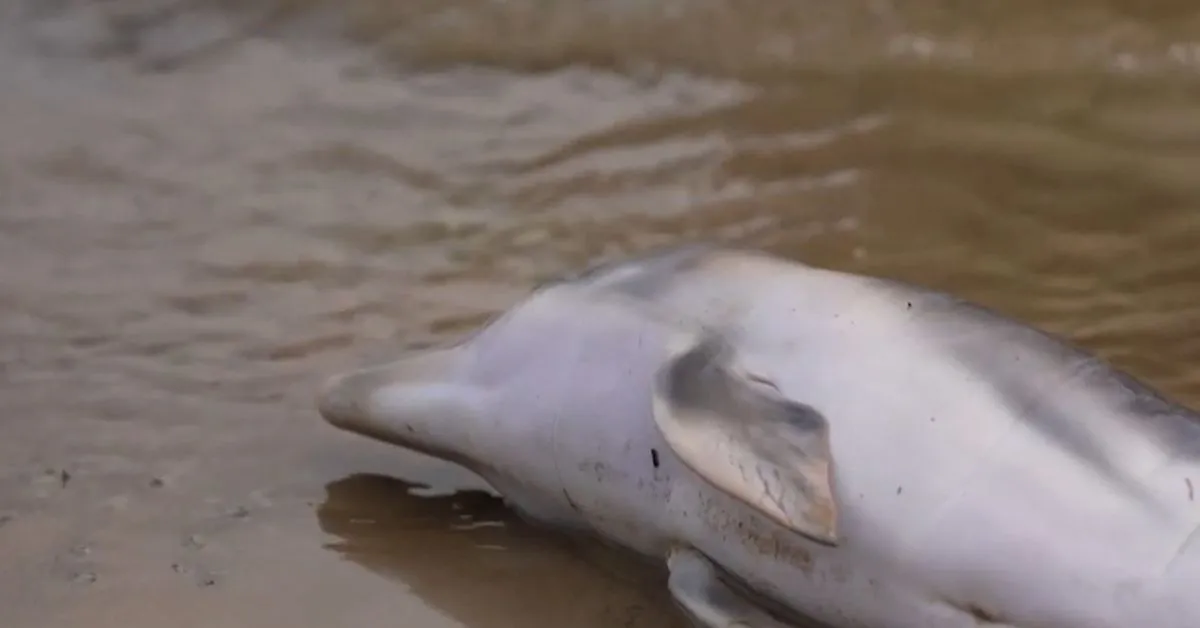
The corpse of a baby dolphin lies on the sandbank which was exposed by receding waters in an Amazonian lake in Brazil that has been drying up during the worst drought on record, contributing to damage to the habitat of thousands of dolphins in the region.
Researchers recovered the dead animal on Thursday (September 19) and measured water temperatures that have been rising as the lake level has dropped. During last year’s drought, more than 200 of the endangered freshwater dolphins died in Lake Tefe due to excessive water temperatures.
Humans are increasingly closer to these species of dolphins
“We have found several dead animals. Last week we found one a day on average,” said Miriam Marmontel, director of the dolphin project at the Mamiraua Institute for Sustainable Development.
“We are not yet associating the deaths with changes in water temperatures, but rather with the exacerbation of proximity between human populations, mainly fishermen, and animals,” he said.
With the arms of the main rivers in the Amazon basin drying up in this year’s critical drought, The lake connected to the Solimoes River has shrunk, leaving less space for dolphins in their favorite habitat.
The lake’s main channel is two metres deep and about 100 metres wide, and is used by all boat traffic, from canoes to heavy ferries, Marmontel said. Two dolphins recently died when boats collided with them.
And it’s not just rare species of dolphins that are suffering. Riverside communities across the Amazon are stranded by a lack of transport in waters too shallow for boats, and their floating homes are now on dry land.
Even houses built on stilts over the water now stand high and dry some distance from the riverbank.
Francisco Alvaro Santos, a resident of Lake Tefe, said it was the first time his houseboat had been out of the water.
“Water is everything to us. “It is part of our daily life, the means of transport for all of us who live here. Without water we are nobody,” said Santos.
Source: https://www.noticiascaracol.com/mundo/delfines-mueren-en-un-lago-del-amazonas-por-la-sequia-en-esta-region-de-brasil-cb20


